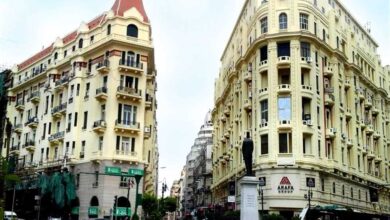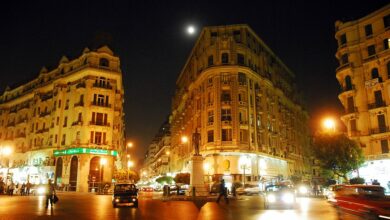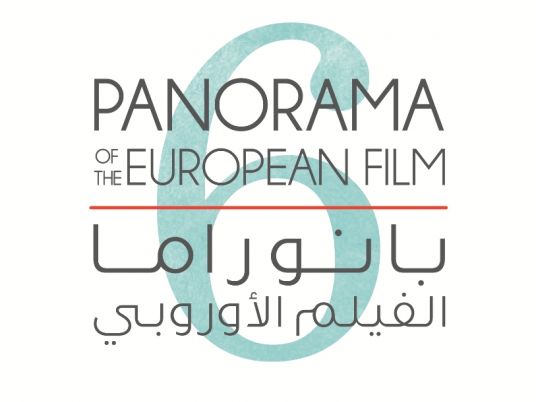While downtown Cairo has been the site of much of the political mobilization in Egypt over the past decade, little attention has been given to the intricate power dynamics of the neighborhood itself. Since the start of the twentieth century, this area has been an important backdrop in its own right in terms of political agency.
Downtown Cairo is administratively and politically divided into two main districts: Abdeen and Qasr el-Nil. The constituencies in the area are shaped in accordance with the contours of that division, with two MPs representing each circle in the parliament. Abdeen and Qasr el-Nil each have one Municipal Council (MC), with elections that are now regularly held once every four years, following the termination of a state-imposed freeze on municipal elections in 2008.
The Benevolent MP?
Qasr el-Nil is a complex political district due to its socioeconomic disparities. This electoral circle encompasses an array of neighborhoods with diverse populations and income levels, as it extends from the borders of the affluent Zamalek to the edges of lower-middle-class Sayyeda Zeinab and Bulaq.
An MP or MC member is supposed to serve and provide for his or her constituencies. Hisham Khalil is one of the two MPs who represent the Qasr el-Nil district in parliament. Khalil argues that Qasr el-Nil is Cairo’s most important constituency, saying that representing it in parliament has been an honor.
“If you can help the people on the street and provide them with the social and economic security they need, you can gain their support,” Khalil says. “Initially, I came against the will of [President Hosni Mubarak’s] National Democratic Party, for the official candidate of the party then was the mighty Hossam Badrawy. But then I rejoined the NDP after I won the elections.”
Candidacy tends to be more difficult in urban Egypt than it is in rural areas because of relatively low voter turnout and a lack of the familial and clan ties that motivate voters in the countryside. Yet in the urban context, and particularly within Downtown, there are different socioeconomic features that several MPs and MC candidates capitalize on during elections. One of these features is the presence of a multitude of major corporations and institutions, which are reservoirs of votes that usually go, en masse, in favor of certain candidates, according to the will of the senior management of the companies. Misr Inurance, the Agricultural Bank, and a variety of co-op foundations are among such businesses.
With the People
An MC member from Abdeen says that a council member has to be close to the people in order to pursue a successful political career in a setting like Downtown. “I have to sit with them, listen to their problems…etc. I was raised as a modest person. Instead of going with an entourage of followers and cohorts, I would go by myself to their gatherings and places of interest,” he said, requesting anonymity.
Recently, the NDP has adopted this approach to Downtown’s politics. The Party Unit is part of the reform process championed by the NDP’s powerful Policies Secretariat. “With the Party Unit, you can attend all meetings and, whatever is expected from you as an MP and an NDP member, has to be fulfilled,” the councilman said. “Social and cultural activities have to be sponsored and vocational training in computers and languages could also be organized for the people of the neighborhood.”
The NDP hopes that the Party Units will serve to offset the advances made by Islamist groups such as the Muslim Brotherhood. “In Ramadan, packages of food were distributed among the people through the Party Unit, and also several problems were solved via the unit with the aid of the MPs of the area: street lighting reparations and the construction of bread outlets at the time of the bread crisis were among the activities that the unit sponsored,” said the member who is also an NDP member.
The municipal improvements were provided through the unit, with the facilitation of the Cairo Governorate. “The virtual inability of the municipalities to provide any viable services to the people independently and without the sponsorship of the party and the governorate is rather obvious,” says Omar Abdallah, a specialist in decentralization and good governance who is now involved with a project that aims to reform municipal councils in Cairo.
“This is why the municipalities need to be much stronger than they are now, for this is the main role that they are supposed to play. With their absence, the MPs have to fulfill such roles,” he says.
How does the MP/MC member do it?
Parliamentary or municipal council candidates are in a unique position in Downtown elections. For example, the fact that Downtown includes many businesses makes it an excellent setting for co-opting labor unions. “Candidates would usually attempt to penetrate these unions,” says the MC member from Abdeen. “The state is usually quite speculative regarding such attempts and would expectedly only allow those that are NDP-affiliated to undertake them. This is the best entry point to any company, as they are composed of people that actually represent the laborers.”
Another method favored by candidates Downtown is gaining support by giving jobs to constituents. “What I did was create three spots for the people of the constituency to submit their CVs and take receipts so that we could keep a record of the number of applicants,” said one MC member from Qasr el-Nil. “Then, monthly, I’d gather them and hand them in to the Ministry of Tourism and the Industrial Chamber, which are usually seeking a labor force with minimal skills to work in the country’s various tourist facilities.”
“During their first three months, the recruited laborer undergoes a basic-skills training program which provides them with the necessary skills, along with a LE350 monthly stipend. Out of those that applied, a filtering-down process takes place and only a small proportion–about 10 percent of the initial applicants–ends up taking the employment.”
Downtown’s dominant political forces
Taking the MPs’ and MC members’ political affiliations as an indicator, one could argue that pro-regime forces dominate Downtown politics. Three of the four MPs and the bulk of the MC members are affiliated with the NDP. But considering that Downtown is a business–rather than residential–area, and that parliamentary and municipal membership is an insufficient indicator of the residents’ politics, there is more to the story than this.
In many senses, Downtown still appears to be a neighborhood that harbors massive potential in terms of public political space. The contest over political agency is likely to remain in downtown Cairo in the near future. The widespread phenomenon of Islamist businesses that could be employed in politics holds a lot of potential. These are predominantly medium- to large-sized retail and food shops and outlets with Islamist characters and potential links to the Muslim Brotherhood. In other parts of Cairo, they have already proven useful in promoting the brotherhood.
An amalgam of factors are yet to be solidified and consolidated within the sociopolitical context of Downtown. In the coming years, as Downtown jumps into the twenty-first century, political agency will be crucial.




